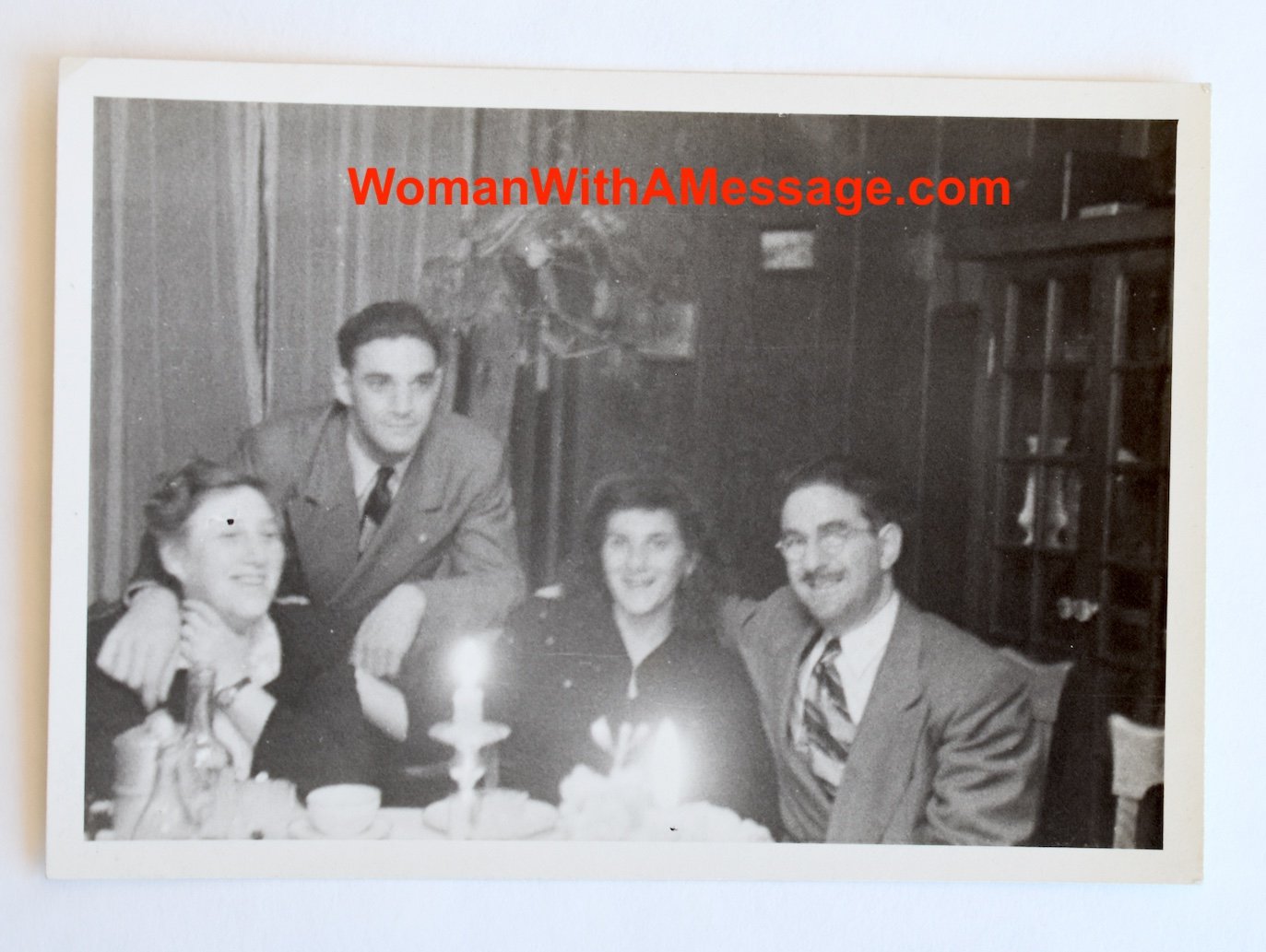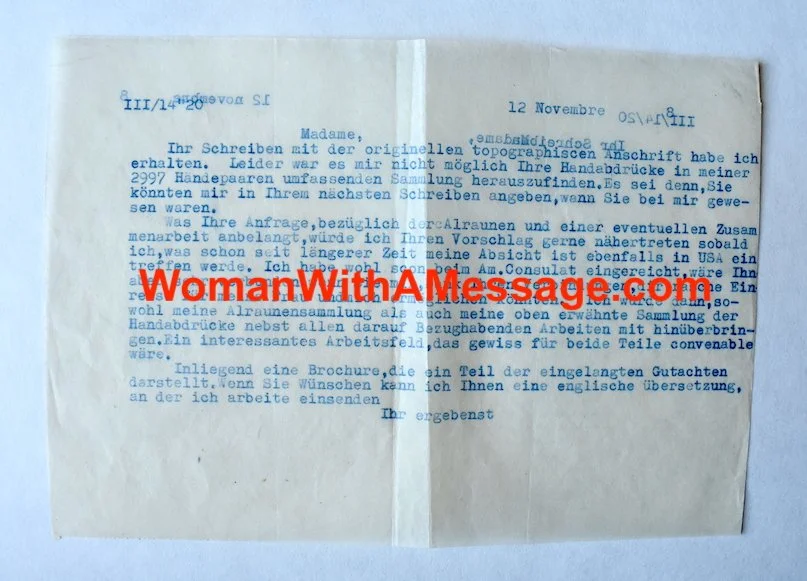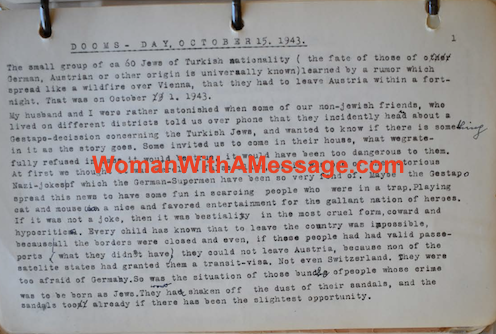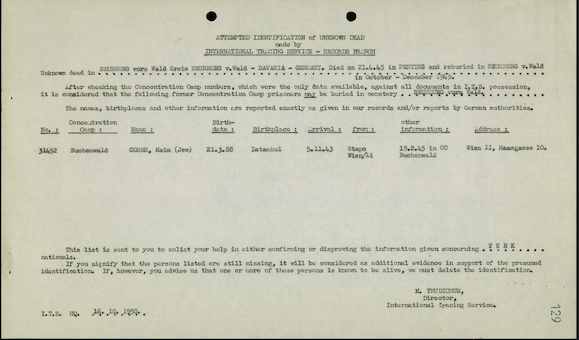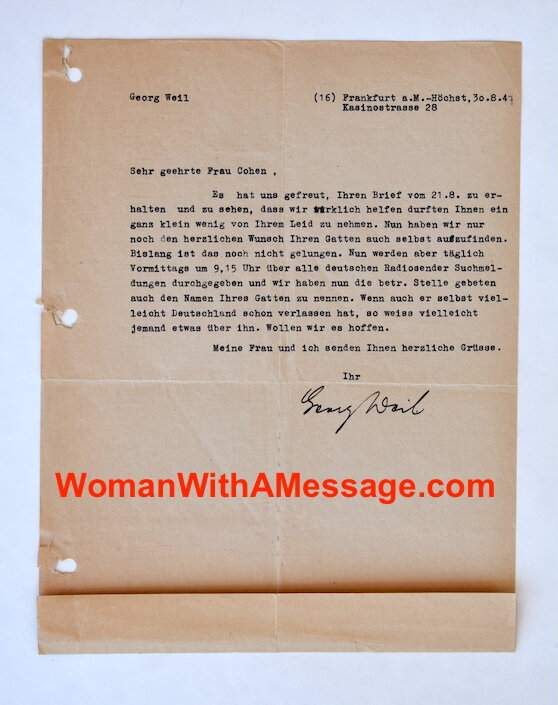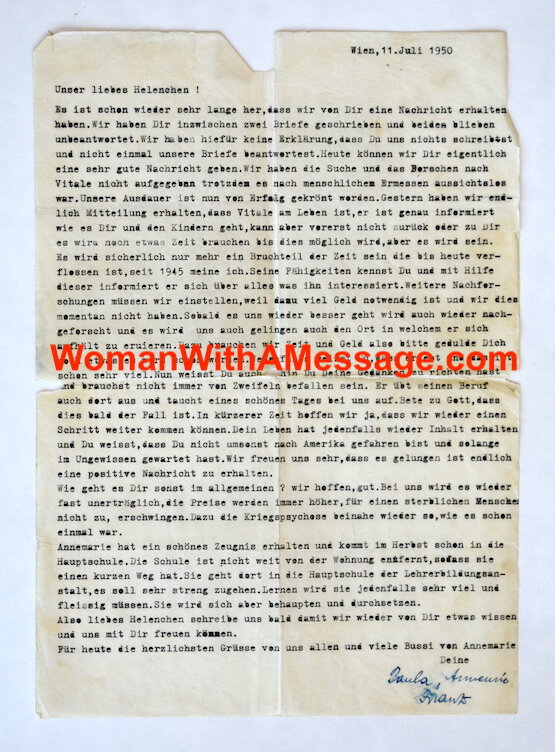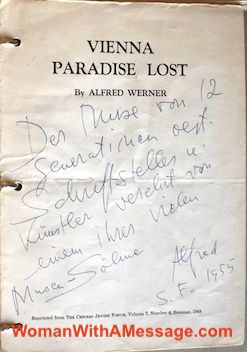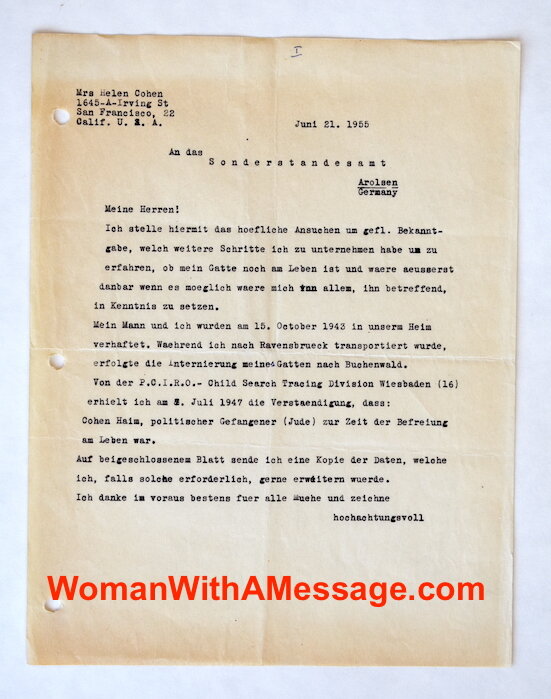The following are some of the testimonials from this document. As I was writing today’s post, I finally understood the numbers on the first page – between March 2, 1933 and August 24, 1939, Vitali had consulted with 3,132 different clients and given 5,584 individual consultations. The majority of testimonials simply state that what Vitali predicted came true or that he read their characters uncannily accurately. Others go into great detail. Having had a similar experience when I decided to get a hand analysis to better understand my grandfather’s vocation, I understand the surprise and fascination of having a complete stranger seemingly see into your soul in a way no one had ever done before. Vitali seems to have gone further in his readings and consultations, including diagnosing medical issues. There is a whole field of medical literature on the use of hand analysis in medicine.
· I admire your gift of prediction, and am hoping for a happy future for you, as well as for myself. I should like to thank you for the accurate data that you have given me. Dr. K.R.
· You have, on the strength of the lines in my hand, read my character and certain important moments of my life with an accuracy of 100%.
· You have described some details of my life - which could not possibly have been known to you beforehand - with great accuracy. R.G., President of the Metaphysical Society of Vienna
· This is a case where one must stop and call out in astonishment: “There are more things in heaven and earth, than are dreamt of in our philosophy.” You have, from my hands, read events of incisive importance, which could not possibly have been known to you in advance; and you have, by this, given me the impression that you dispose over the mysteries of intuition.
· “Well roared lion.!” You have an accurate grasp of that mainspring of our intellectual activity, direct to some purpose, which lies within our subconscious mind.
· I am genuinely surprised.
· I have, today, seen you for the very first time in my life; and it was a mere accident, your offering to take an imprint of my palm. You have, on this occasion, said things to me about both the past and the present which are so strikingly true, that I greatly hope that the things which you told me about my future will also come true.
· I was simply speechless by the truth of everything you told me.
· I understand nothing of those matters, and my attitude towards your gifts hence is a skeptical one; I was, nonetheless, amazed about your diagnosis.
· It is interesting to see, with which lucidity you read a person’s character, as well as that which he has lived through, from the lines in his hands. O.H. Inspector
· You cannot even know how true are the things which you have told me! Professor M.H.
· You have looked into my soul’s most secret corners in a manner which is perfectly amazing! I hope that your advice will be valuable to me for my future life, and I shall keep you informed for purposes of checking up on your predictions.
· You are an uncanny person, Mr. Cohen - with those unerring x-ray eyes of yours - I feel myself sitting naked before you.
· You are a man who should be taken perfectly seriously.
· You are a fabulous psychologist and clairvoyant. I enjoy my visits to you, for you can give me consolation and courage. July 23, 1934.
· You have a grandiose intuition which is perfectly amazing; it is not the ordinary type of clairvoyance; it is more; it is seeing.
· Sub specie aeternitatis
The deeper I am looking into thee, blue sky,
The nearer dost thou still appear to me;
The stronger, God, I think Thee to the end,
The pitifuller do I fall before Thee….
From my volume of poems To Mr. Cohen, with grateful admiration. Alfred Werner.
· “Bend down to greatness! For the very greatest
who look down placidly on our storms
they do not soar, as angels and as blessed;
they bend themselves to far-off courses
of even deeper life,
to higher greatness, which they do but dream,
in that which is unmeasured, unexplored and high.”
From my poem: Gratitude to Greatness
To you, Mr. Cohen, in remembrance of a highly interesting hour of spirits
Fred Hernfeld [later known as Alfred Farau]
· You have predicted a dental abscess for a patient of mine, who never had had anything serious the matter with his teeth, a few weeks beforehand. This abscess has now been discovered by way of an x-ray being taken; it is a highly important center of infection. Dr. R.W.
· You have, by intuition, told me characteristic traits as well as facts of my own and my parents’ past; this shows your extraordinary gifts of clairvoyance; and I find you, also in other respects, a very interesting man. Dr. L.D.
· You draw away a dark curtain, and one gets a glimpse of a strange world - one’s own. Dr. M.B.
· I have, repeatedly, taken the opportunity of convincing myself of your gift as a clairvoyant; but you really are filled with human kindness and philosophical peace too; and this makes your phenomenal capacity of giving advice to the questioning human fellow-being such a boon. July 20, 1934
· I came to you, on August 5, 1933, to ask you for your advice about a certain matter; I asked you, besides, whether you could not help my boy, eleven years old, who had been coughing terribly all the time since 1931; a thing which keeps him back in his schoolwork and is a disturbance to his surroundings. You refused my request at first, saying that you were not a physician. You advised me, at the same time, to consult a specialist. It was but after I told you that I had done everything possible, but without success, that I came to you, with my son, on August 7, 1933. After having taken an imprint of his hand you said, in your smiling way: “Now look here: you are not allowed to cough anymore; do you hear?” to the boy. It is a fact that ever since that day, and up to now - June 10, 1936 - that is to say through three years, the boy has no longer been coughing, much to the surprise of the physicians in charge of his case. I am very happy, and very grateful for the help you have given me. August 5, 1933/June 10, 1936
· He who knows you need never despair. June 7, 1936
· My dear Mr. Cohen, I want to write and thank you for your well-meant advice, and I am, at the same time, taking the liberty of replying to it. I write to you with all my heart. Just imagine that I am much better, physically. I often feel that you must have prayed God for me, or have done something else for my sake - and that this is the reason for which my condition has changed so much during the last time. Do you know, my dear Mr. Cohen, that I think of you almost every hour of my life. Whatever I start doing, I think within myself, is that a thing that I am permitted to do? What would Mr. Cohen, the physician of my soul, have to say about it? I always see you before me in my mind’s eye; you are with me wherever I go. I shall be grateful through all my life to Mrs. V. for having taken me to you. I pray to God that He may protect you from all blows of destiny, and that there shall be nothing but sunshine in your life. That is the wish that your grateful Mary feels for you. When I shall come to Vienna again, my first errand will be to come to you. You have great power over me; I constantly have the feeling that you are near me. If you will permit, I shall have much to tell you about. I have, of late, had a good appetite and been capable of enjoying everything again. All that which is within wants to get reconciled to God and men again. I believe that I owe my wonderful recovery to you. November 12, 1933
· I have, ever since the mandrake is in my possession, slept deeply through the entire night; a thing which had not occurred for almost a year; for the reason of the worries waking me up again and again. April 11, 1936/April 16, 1936
· Two specialists wanted my wife to undergo an operation in her belly; I was terribly frightened of it, as doctors said the case was a very grave one. I went to see you, and, without having seen my wife, you told me that the operation would be unnecessary, after having asked me for a few dates. I have since sent my wife to yet another specialist, who has cured her without the operation. If it had not been for you, my wife would have been operated on the next day (i.e. July 10, 1935). After a fortnight’s treatment she has since recuperated without the operation; and she is feeling very well to this day. November 11, 1935/November 14
· On the point of leaving Europe, I should like to send you a word of grateful memory and thanks for the wise advice you have given me to take with me on my new path - to start out on a new life. Greetings! June 21, 1935, Trieste.
· Having no job and being, consequently, very depressed, I went to see you at 5 o’clock this afternoon. I had lost all hope of finding a chance to earn in the course of the summer. You consoled me and said, literally: “It’ll be all right as time goes on; why don’t you spit out all your ill luck?!” Involuntarily, I acted accordingly, and lo! half an hour later, walking on the street, I ran into a manager whom I had not met until then, and who happened to be walking with a friend of mine; he gave me a contract with an unexpectedly high salary! July 18, 1935.
· I felt so unhappy during the night from January 29 to January 30 that I wanted to blow out the gas; just so I had to live no longer. Then I remembered that I won a mandrake - I took it into my hands - my weariness of living was over at this very moment. Then again in the night from February 18 to February 19, I could not go to sleep with exhaustion; I again took hold of the mandrake - I hardly had felt it in my hand when I went off to sleep. Again my little mandrake has helped me! February 19, 1937.
